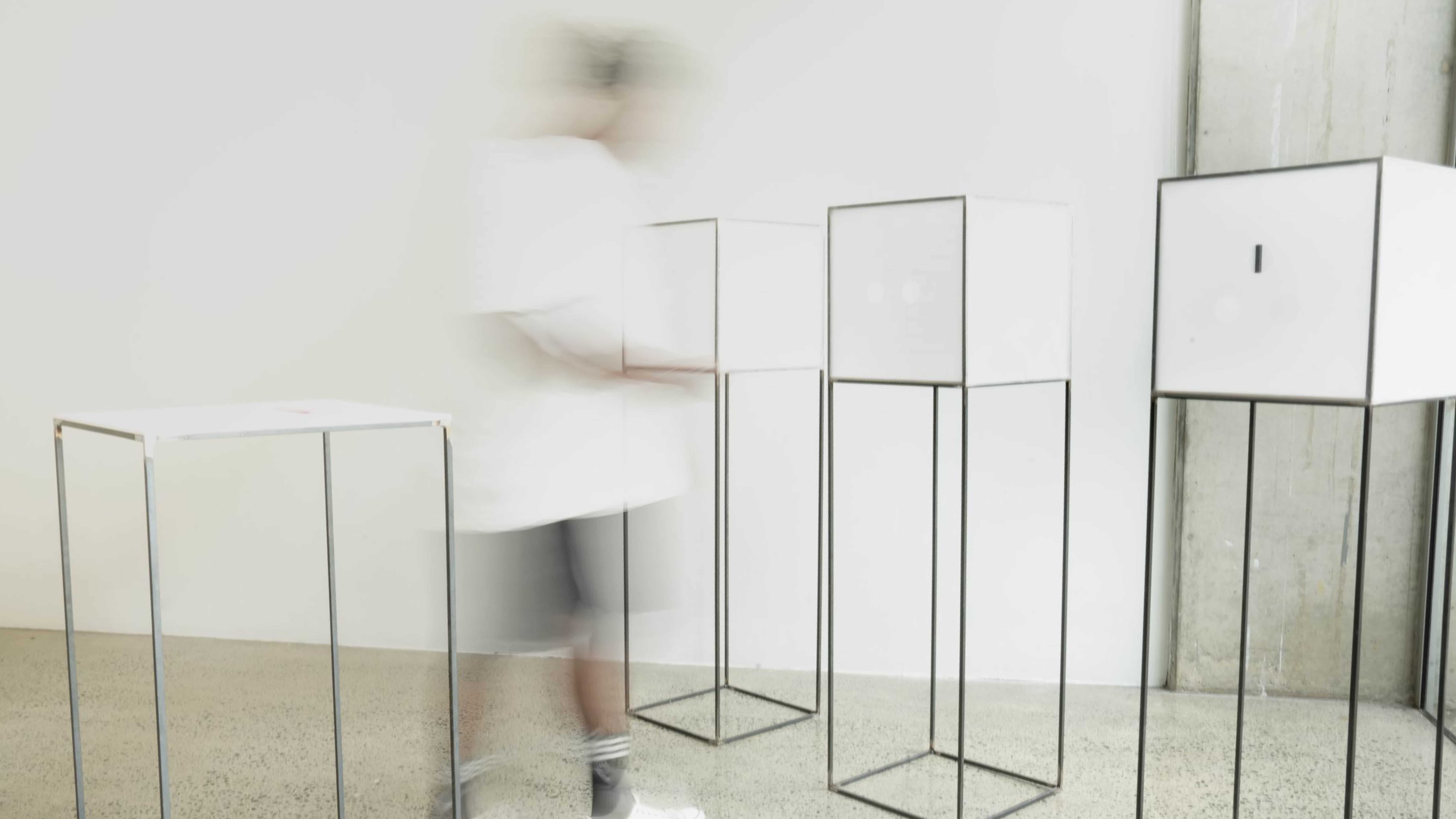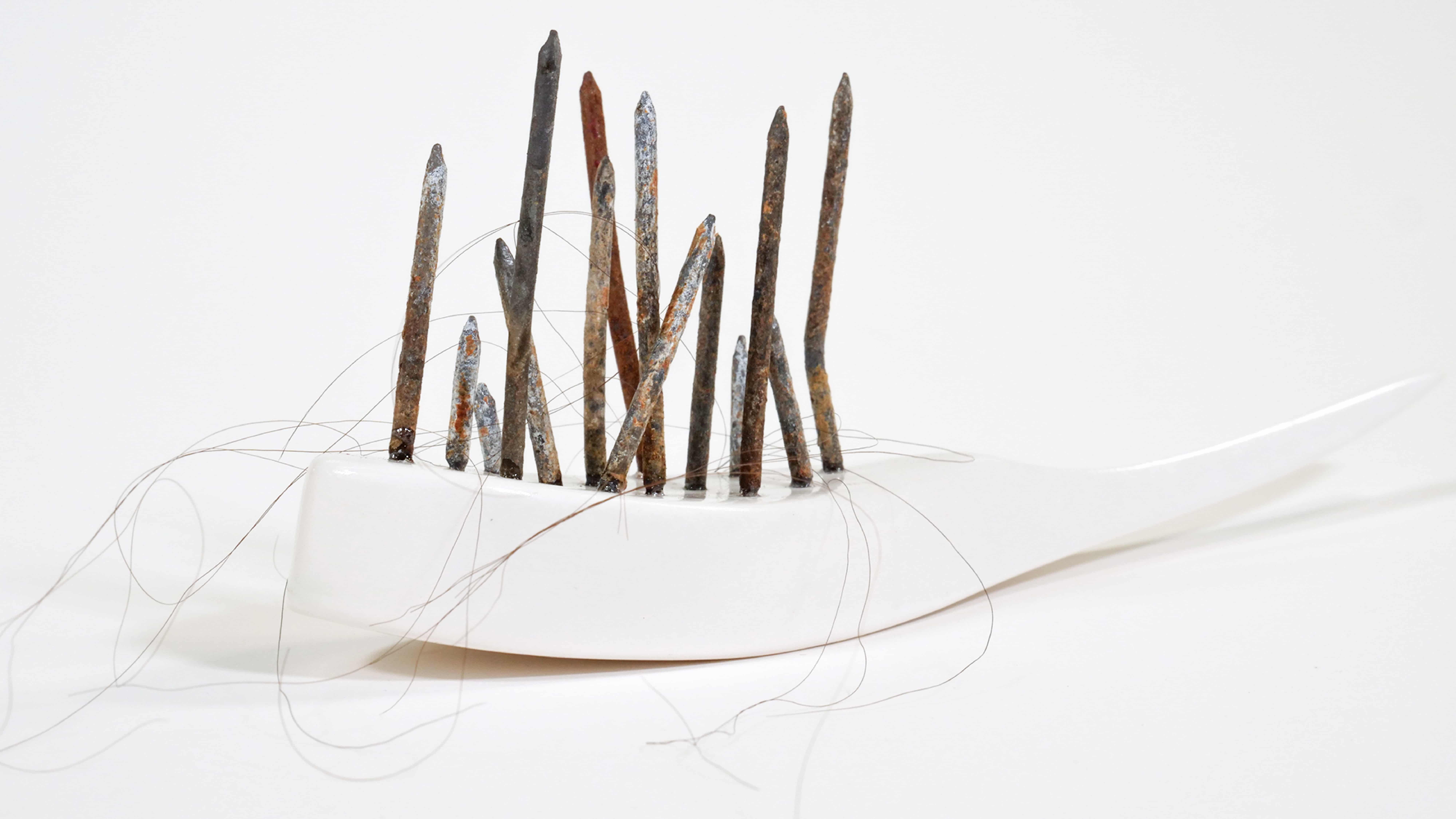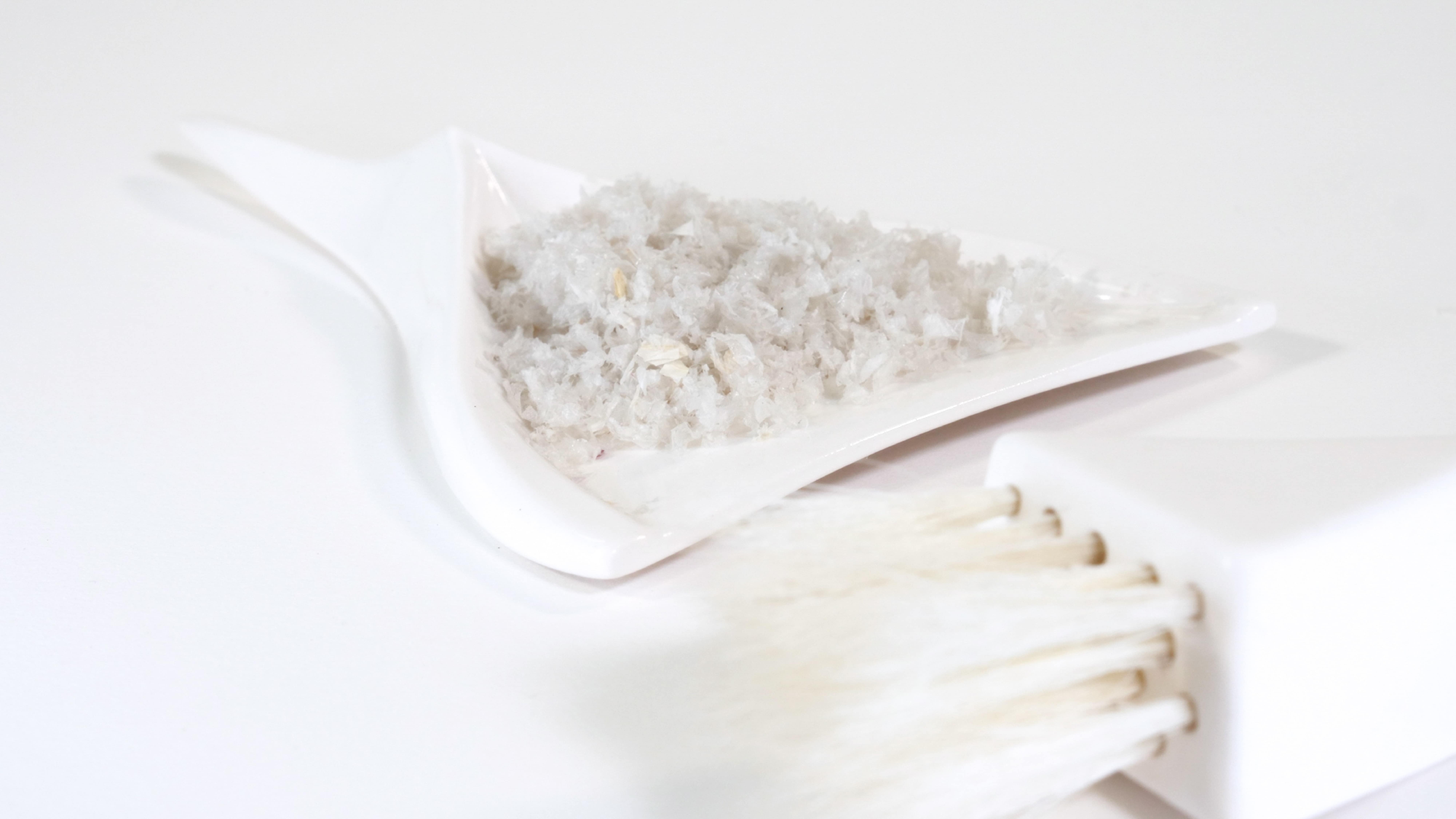
Due to the chronic nature of eczema, design is not able to cure it. However, we can address the emotional symptoms through critical artefacts.
There was an opportunity to prompt conversations about eczema between affected and unaffected adults to promote empathy and awareness.
I have designed a travelling public installation. It is a collection of provoking artefacts. These artefacts are based on the physical sensations of eczema. They are extreme and unsafe to use. They are intended to spark conversation. They are meant to shock adults without eczema. These artefacts help those affected by eczema compare and reflect on their own experiences.
This exhibit can travel to places where young adults congregate, such as galleries, university courtyards, and public gathering spaces like Aotea Square.
The participant begins by scratching a scratchy card. This reveals 3 different quotes. Each quote relates to a different box. You then peep into the physical box which matches the quote theme. Inside each box are confronting artefacts.
Can you remember a time when your skin broke out? Maybe it was a fat pimple on your nose? Or a cluster on your forehead?
How did you feel?
Did it feel like all eyes were on you?
Eczema is a noticeable chronic condition.
It causes the skin to become dry and inflamed. This dryness causes the person to itch to relieve themselves. Skin breaks, heals, then it breaks again. It is an unbreakable cycle.
Treatment for eczema is limited to only the physical signs. There is a lack of support for adults to manage emotional symptoms.
Eczema affects personal relationships. When you have a bad flare-up, you do not want others to see you and cancel your plans to go out.
It interferes with daily activities such as exercising. Exercise is vital to maintain your physical and mental health.
However, heat and sweat trigger the skin and this can limit affected adults from being able to be active, impacting their quality of life.
So, imagine your skin is cracked, bloody, and inflamed. You spend all day and night resisting the itch, using cold compresses, and moisturising.
These physical symptoms are bad. What is worse is when unaffected adults make nasty remarks, stare, or move away from you.
These things linger on your mind, making you overthink and over analyse everything. With pain, itchiness, and lost sleep. Eczema can become emotionally draining which leads to depression in 7 out of 10 affected adults.
We need open and honest conversations about eczema. Skin conditions should be normalised. When unaffected people can understand the experiences of those affected, we can generate empathy.




